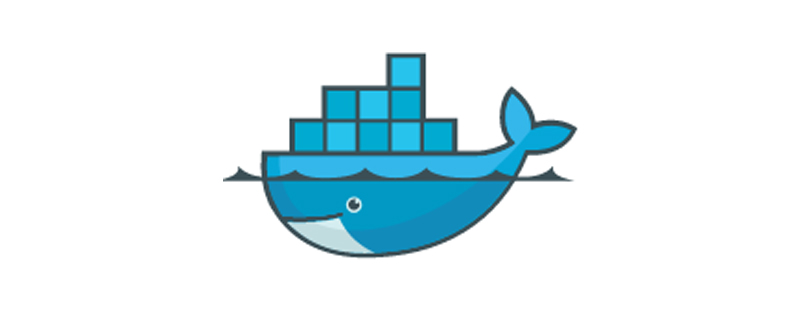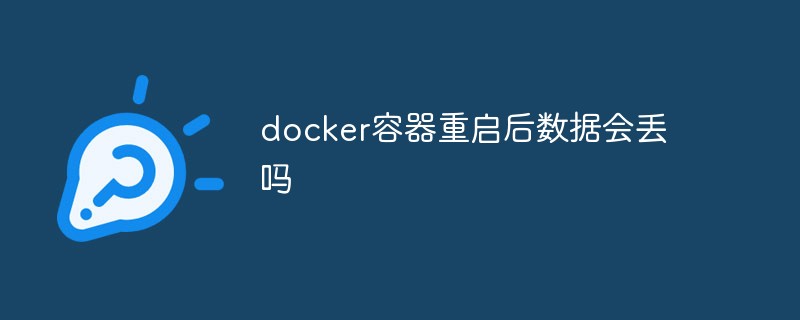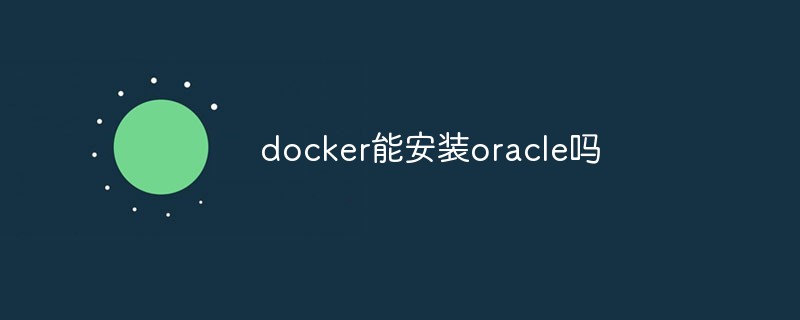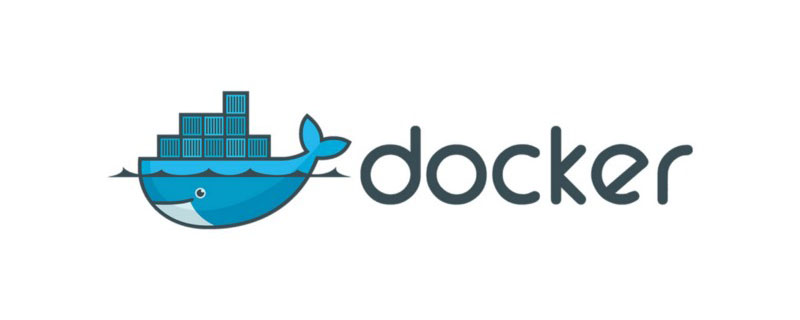In docker, the main function of the mirror warehouse is to store and distribute docker images; the mirror warehouse is several places to store images. The mirror warehouse can be divided into two types: remote warehouse and local warehouse. The remote warehouse can be understood as Cloud warehouses and public warehouses are warehouses maintained by an organization or company. Local warehouses can be understood as private warehouses and are not open to the public.

The operating environment of this tutorial: linux7.3 system, docker version 19.03, Dell G3 computer.
What is the use of docker image warehouse
Mirroring can be understood as packaging applications and operating environments into "application templates", which is the upper abstraction of containers. A container is a running instance of an image. When starting, the application can be run by passing the corresponding parameters. The relationship between the two is similar to "classes and objects" in code.
To run an application as a container, you need to create an image first, specify the application's running environment, startup method and other information in the image, then generate the image and upload it to the image warehouse. When you want to run the application later, you will pull the image from the image warehouse and run it as a container. As long as the operating system supports container operation, the application can be run, shielding environmental differences and making deployment and operation simple.
Mirror warehouses can be divided into two types:
Remote warehouses: can be understood as cloud warehouses and public warehouses, which are warehouses maintained by an organization or company. The Internet is open and shared by everyone. Such as the official warehouse;
Local warehouse: It can be understood as the company's private warehouse and is not open to the public. Under normal circumstances, it is only used in the company's intranet to speed up image pulling and maintain company assets.
Currently, Docker officially maintains a public warehouse Docker Hub. Most needs can be achieved by directly downloading the image in Docker Hub. If you feel that pulling the Docker Hub image is slow, we can configure an image accelerator. Of course, most domestic cloud vendors provide corresponding accelerators, which can be simply configured.
Image is the basis of docker. We can pull the image from the official docker.hub warehouse, or we can build our own private warehouse
Expand knowledge
Build a registry image
First, download the Registry image and start it
docker pull registry
Then, run a container of the Registry mirror warehouse Example
Finally, view all the images in the mirror warehouse on the client
curl http://your-server-ip:5000/v2/_catalog
Upload the image
First, in order to allow the client server to quickly To access the mirror warehouse just built on the server (by default, an HTTPS certificate needs to be configured), here we simply configure the trust settings of the private warehouse on the client so that we can access it directly through HTTP:
vim /etc/docker/daemon.json
Add In the following sentence, please replace "your-server-ip" here with the external IP address of your server:
{
"insecure-registries" : [ "your-server-ip:5000" ]
}PS: If you do not set a trusted source and do not configure an HTTPS certificate, then it will Encountered this error: error: Get https://ip:port/v1/_ping: http: server gave HTTP response to HTTPS client.
In order for the configuration to take effect, restart the docker service: # systemctl restart docker
Secondly, tag the image to be uploaded
docker tag your-image-name:tagname your-server-ip:5000/your-image-name:tagname
最后,开始正式上传镜像到服务端镜像仓库 docker push your-registry-server-ip:5000/your-image-name:tagname
Download the image
Downloading the image is very simple, just use the pull command:
docker pull your-server-ip:5000/your-image-name:tagname
If you want to know what tags (or versions) the image to be downloaded has, you can get it through the following API:
curl http://your-server-ip:5000/v2/your-image-name/tags/list
Recommended learning: "docker video tutorial》
The above is the detailed content of What is the use of docker image warehouse?. For more information, please follow other related articles on the PHP Chinese website!
 docker中rm和rmi有什么区别Jul 14, 2022 am 11:02 AM
docker中rm和rmi有什么区别Jul 14, 2022 am 11:02 AMdocker中rm和rmi的区别:rm命令用于删除一个或者多个容器,而rmi命令用于删除一个或者多个镜像;rm命令的语法为“docker rm [OPTIONS] CONTAINER [CONTAINER...]”,rmi命令的语法为“docker rmi [OPTIONS] IMAGE [IMAGE...]”。
 docker官方镜像有哪些May 12, 2022 pm 02:23 PM
docker官方镜像有哪些May 12, 2022 pm 02:23 PMdocker官方镜像有:1、nginx,一个高性能的HTTP和反向代理服务;2、alpine,一个面向安全应用的轻量级Linux发行版;3、busybox,一个集成了三百多个常用Linux命令和工具的软件;4、ubuntu;5、PHP等等。
 docker是免费的吗Jul 08, 2022 am 11:21 AM
docker是免费的吗Jul 08, 2022 am 11:21 AMdocker对于小型企业、个人、教育和非商业开源项目来说是免费的;2021年8月31日,docker宣布“Docker Desktop”将转变“Docker Personal”,将只免费提供给小型企业、个人、教育和非商业开源项目使用,对于其他用例则需要付费订阅。
 docker容器重启后数据会丢吗Jun 17, 2022 am 10:41 AM
docker容器重启后数据会丢吗Jun 17, 2022 am 10:41 AMdocker容器重启后数据会丢失的;但是可以利用volume或者“data container”来实现数据持久化,在容器关闭之后可以利用“-v”或者“–volumes-from”重新使用以前的数据,docker也可挂载宿主机磁盘目录,用来永久存储数据。
 docker能安装oracle吗Jul 08, 2022 pm 04:07 PM
docker能安装oracle吗Jul 08, 2022 pm 04:07 PMdocker能安装oracle。安装方法:1、拉取Oracle官方镜像,可以利用“docker images”查看镜像;2、启动容器后利用“docker exec -it oracle11g bash”进入容器,并且编辑环境变量;3、利用“sqlplus /nolog”进入oracle命令行即可。
 什么是docker最早支持的存储引擎May 12, 2022 pm 03:27 PM
什么是docker最早支持的存储引擎May 12, 2022 pm 03:27 PMAUFS是docker最早支持的存储引擎。AUFS是一种Union File System,是文件级的存储驱动,是Docker早期用的存储驱动,是Docker18.06版本之前,Ubuntu14.04版本前推荐的,支持xfs、ext4文件。
 docker存储空间不足怎么办Jul 22, 2022 pm 03:44 PM
docker存储空间不足怎么办Jul 22, 2022 pm 03:44 PM解决方法:1、停止docker服务后,利用“rsync -avz /var/lib/docker 大磁盘目录/docker/lib/”将docker迁移到大容量磁盘中;2、编辑“/etc/docker/daemon.json”添加指定参数,将docker的目录迁移绑定;3、重载和重启docker服务即可。
 docker容器管理ui有哪些May 11, 2022 pm 03:39 PM
docker容器管理ui有哪些May 11, 2022 pm 03:39 PM容器管理ui工具有:1、Portainer,是一个轻量级的基于Web的Docker管理GUI;2、Kitematic,是一个GUI工具,可以更快速、更简单的运行容器;3、LazyDocker,基于终端的一个可视化查询工具;4、DockStation,一款桌面应用程序;5、Docker Desktop,能为Docker设置资源限制,比如内存,CPU,磁盘镜像大小;6、Docui。


Hot AI Tools

Undresser.AI Undress
AI-powered app for creating realistic nude photos

AI Clothes Remover
Online AI tool for removing clothes from photos.

Undress AI Tool
Undress images for free

Clothoff.io
AI clothes remover

AI Hentai Generator
Generate AI Hentai for free.

Hot Article

Hot Tools

SublimeText3 Chinese version
Chinese version, very easy to use

WebStorm Mac version
Useful JavaScript development tools

Zend Studio 13.0.1
Powerful PHP integrated development environment

SublimeText3 Linux new version
SublimeText3 Linux latest version

Safe Exam Browser
Safe Exam Browser is a secure browser environment for taking online exams securely. This software turns any computer into a secure workstation. It controls access to any utility and prevents students from using unauthorized resources.







